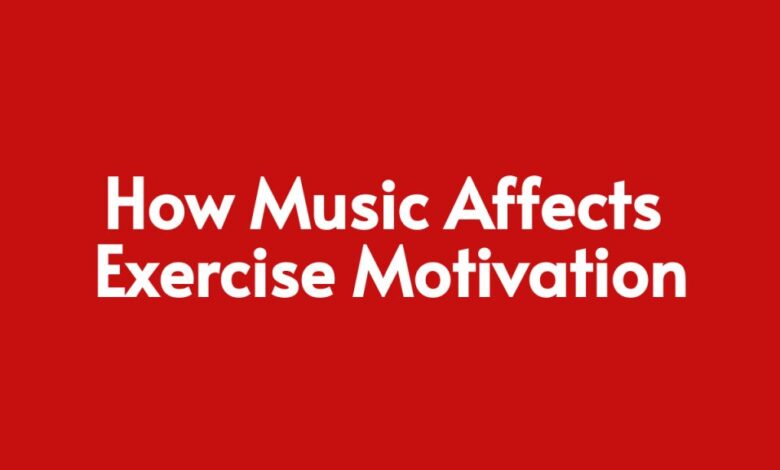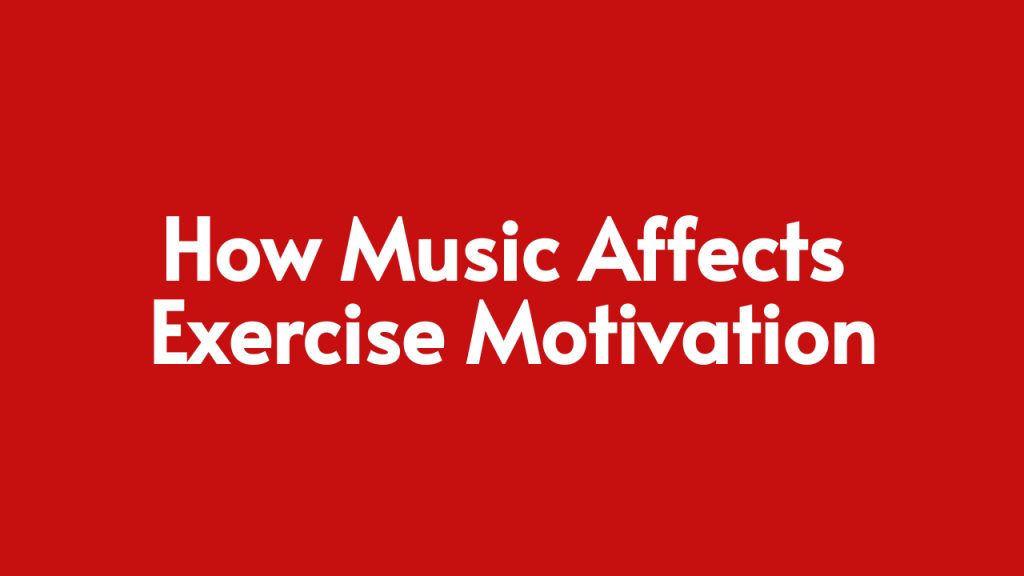
How Music Influences Your Workout
How music influences your workout is a topic that has been studied extensively, and for good reason. We all know that music can make us feel energized, motivated, and even happy. But did you know that music can actually improve your workout performance?
From boosting your endurance to helping you overcome fatigue, music can be a powerful tool for taking your workouts to the next level. In this blog post, we’ll explore the science behind music’s impact on exercise, and how you can use it to create a more enjoyable and effective workout routine.
We’ll delve into the different ways music can influence your workout, from the motivational power of different genres to the impact of tempo and rhythm on your performance. We’ll also look at how music can affect your mood and cognitive function during exercise, and how you can create the perfect workout playlist to enhance your experience.
Music and Motivation

Music has an undeniable impact on our mood and energy levels, and this effect is particularly pronounced during workouts. The right music can transform a mundane exercise session into an exhilarating experience, pushing us to work harder and achieve more.
The Influence of Music Genres
The genre of music you choose can significantly influence your workout motivation.
- Upbeat and energetic genres like pop, electronic dance music (EDM), and hip-hop are often associated with increased energy and motivation. These genres typically have fast tempos and catchy rhythms that can help you push through tough workouts.
- For endurance activities like running or cycling, slower tempo music with a steady beat, such as classical or ambient music, can be more effective.
Pumping up the volume with your favorite tunes can do wonders for your workout, pushing you further and making the effort feel more enjoyable. But did you know that music’s impact goes beyond just motivation? It actually plays a role in how your body responds to exercise, influencing the release of hormones like testosterone and cortisol, which are crucial for building muscle and improving recovery.
To understand the science behind this connection, check out this article on the connection between hormones and training performance. So, next time you hit the gym, don’t forget to crank up the music – it’s not just about the beat, it’s about optimizing your workout from the inside out!
These genres help maintain a consistent pace and rhythm, minimizing fatigue and promoting focus.
- For strength training, heavy metal or rock music can be motivating, as the powerful and aggressive nature of these genres can inspire you to lift heavier weights.
The Impact of Tempo and Rhythm
Tempo, measured in beats per minute (BPM), and rhythm play a crucial role in influencing workout intensity and performance.
- Faster tempos (120-160 BPM) are generally associated with increased heart rate and energy expenditure, making them ideal for high-intensity workouts like sprints or interval training.
- Slower tempos (60-100 BPM) are better suited for endurance activities, helping maintain a steady pace and minimizing fatigue.
- Rhythm refers to the pattern of sounds in music, and a strong, consistent rhythm can help synchronize your movements, improve coordination, and enhance your overall performance.
Overcoming Fatigue and Boredom, How music influences your workout
Music can be a powerful tool for overcoming fatigue and boredom during workouts.
- Upbeat music can help distract you from the physical discomfort of exercise, making the workout feel less strenuous.
- Music with a strong beat can help you maintain a consistent pace and rhythm, preventing you from slowing down or losing focus.
- Changing up your playlist throughout your workout can help keep things interesting and prevent boredom.
Music and Performance: How Music Influences Your Workout

Music isn’t just a motivational tool; it can directly impact your workout performance. Studies show that the right tunes can boost endurance, strength, and speed, making your workouts more effective.
The Influence of Music on Different Workout Types
Music’s effect on performance varies depending on the type of workout. Here’s a breakdown of how music impacts different workout types:
Running
Music with a faster tempo (120-140 beats per minute) can increase running speed and endurance. This is because the music’s rhythm can synchronize with your stride, making it feel more natural and effortless. Studies have shown that runners who listen to music with a faster tempo tend to run longer distances and at a faster pace.
Weightlifting
For weightlifting, music with a heavy beat (100-120 beats per minute) can increase strength and power. The rhythmic nature of the music can help you synchronize your movements with the beat, leading to better coordination and more explosive power.
Pumping up the volume with your favorite tunes can definitely boost your workout intensity, but remember, recovery is just as important! Taking those rest days can help you avoid burnout and actually improve your performance in the long run.
5 great things about recovery days can help you understand why these days are crucial. So, while you’re jamming out to your workout playlist, don’t forget to schedule in those recovery days for a balanced and effective fitness routine.
This is especially beneficial for exercises like squats, deadlifts, and bench presses.
Yoga
Music plays a crucial role in yoga practice, influencing the flow and intensity of the poses. Soothing and calming music with a slower tempo (60-80 beats per minute) can help you relax and focus on your breath, promoting a sense of peace and mindfulness.
Conversely, more energetic music with a faster tempo can energize you and help you hold poses longer.
Improving Coordination and Timing
Music can improve coordination and timing in workouts by providing a rhythmic framework for your movements. The consistent beat and tempo of music can help you synchronize your movements with the rhythm, leading to more fluid and controlled movements.
This is especially beneficial for exercises that require precise timing and coordination, such as plyometrics, martial arts, and dance.
Music is a powerful tool for motivation, and for endurance athletes, it can be especially helpful in pushing through tough workouts. The right playlist can help you find your rhythm and maintain a steady pace, especially when you need to fuel your body with the right carbs.
To learn more about how endurance athletes should carb up during workouts, check out this helpful article: how endurance athletes should carb up during workouts. Once you’ve got your fueling strategy down, you can really focus on the music and let it carry you through your next big challenge!
Music and Cognitive Function
Music has a profound impact on our cognitive abilities, and this influence extends to our workouts. By tapping into the power of music, we can enhance our focus, concentration, and even our memory during exercise.
Music Enhances Focus and Concentration During Workouts
Music can act as a powerful tool to improve our focus and concentration during workouts. When we listen to music, our brain shifts its attention to the auditory stimuli, effectively blocking out distractions and promoting a state of mental clarity.
This heightened focus allows us to better engage with our exercise routine, leading to improved performance and a more rewarding workout experience.
Music Enhances Cognitive Performance and Memory During Exercise
Beyond its effects on focus, music can also enhance our cognitive performance and memory during exercise. Studies have shown that listening to music while exercising can improve our ability to learn new skills and retain information. This is because music can stimulate the brain’s reward system, leading to increased dopamine levels, which are associated with learning and memory.
Examples of Studies on Music and Cognitive Function in Exercise Settings
- A study published in the journal “Psychonomic Bulletin & Review” found that listening to music during a memory task improved participants’ performance, particularly for tasks requiring working memory.
- Another study, published in the journal “Frontiers in Human Neuroscience,” demonstrated that listening to music while exercising enhanced cognitive function, specifically in areas related to attention, processing speed, and executive function.
Closure

Music is a powerful tool that can enhance your workout experience in numerous ways. Whether you’re looking to boost your motivation, improve your performance, or simply make your workouts more enjoyable, incorporating music into your routine can make a world of difference.
By understanding how music affects your body and mind, you can create a playlist that will help you achieve your fitness goals and make your workouts more rewarding.






